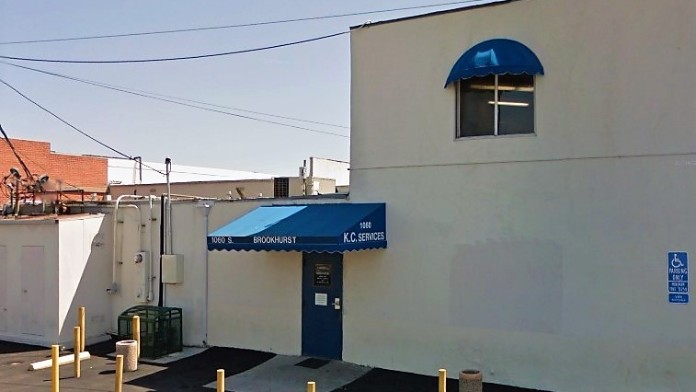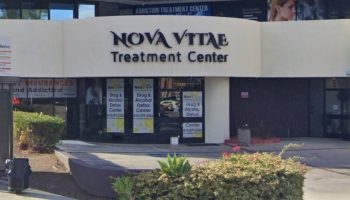KCS Counseling – Fullerton

About KCS Counseling – Fullerton
The Korean Community Services (KCS) is a trusted Federally Qualified Health Center (FQHC) dedicated to serving residents of California’s Orange County and the neighboring communities. They’re situated along South Brookhurst Road in Fullerton, just less than two miles east of the Orangethorpe Park and southwest of the historic Fox Theatre Complex. KCS seeks to enhance individuals’ well-being, strengthen families and uplift communities through high-quality healthcare services, social support and community programs.
From substance use recovery and mental healthcare to physical examinations and chronic disease management, KCS’s integrated care facilitates lifelong wellness for individuals and families alike. They even offer alternative medicine such as acupuncture and chiropractic adjustments to promote natural healing and complement traditional treatments.To keep costs low, they accept Medicare, Medi-Cal and offer sliding-fee scales for the uninsured and underinsured.
This ensures no one is denied care due to an inability to pay. I also find their telehealth support appealing as this enhances flexibility and convenience by enabling you to receive care in the comfort of your home. The facility averages 4.4 stars out of five.
Medication-Supported Recovery For Opioid Addiction
Medication-assisted treatment is an evidence-based technique that supports long-term abstinence by pairing counseling with FDA-approved medication. If you’re facing primary opioid use challenges, the compassionate folks at KCS may prescribe buprenorphine as part of your personalized recovery plan following assessment.
This medication eases withdrawal symptoms and intense cravings so that you can focus on long-term abstinence through counseling. Through regular counseling, you’ll confront the underlying emotional triggers, build effective coping strategies to prevent relapse and gain momentum in your healing journey.
Prioritizing Individuals With Unique Needs
They’re licensed and trusted providers of assessment and therapeutic support for domestic violence survivors, child abuse victims and DUI offenders. The agency partners with the court, probation department and local social service agencies to ensure coordinated care and ongoing support for lasting success. As a FQHC, they prioritize underserved communities and vulnerable populations such as people experiencing homelessness, those living with HIV/AIDs and members of the LGBTQ community.
| Levels of Care | Detox Service Setting | Programs | Payment Options |
|---|---|---|---|
|
Inpatient and residential programs provide round-the-clock medical and emotional support as you live at the treatment facility. This level of care may be recommended if you have severe addictions or mental health conditions since it removes outside distractions and allows you to focus solely on therapy. |
In outpatient therapy, you’ll attend therapy sessions several times each week while living at home. This is ideal if you have a strong support system and a lower risk of relapse. Outpatient treatment offers flexibility to maintain work, school or family obligations. |
||
|
Inpatient detox occurs in a dedicated treatment facility. You’ll live there around the clock and receive intensive medical support and supervision to help manage your withdrawal symptoms. It is suitable for individuals with moderate to severe addictions as it ensures a stable detox environment. |
Outpatient detox gives you access to medically supervised withdrawal services while still allowing you to live at home. You’ll attend a clinic for treatment and monitoring. This flexible option is suitable for those with mild to moderate withdrawal symptoms who have strong support systems. |
||
|
Alcohol detox programs offer medical support to help individuals withdraw safely from alcohol. Your care team may use medications to ease your symptoms and provide medical monitoring to address complications. |
Drug detox programs support individuals who are withdrawing from addictive substances like cocaine and heroin. Medical support helps you manage symptoms in a controlled and safe environment so you can achieve initial sobriety. |
||
|
Private Insurance
|
Self Pay
|
Levels of Care
Inpatient and residential programs provide round-the-clock medical and emotional support as you live at the treatment facility. This level of care may be recommended if you have severe addictions or mental health conditions since it removes outside distractions and allows you to focus solely on therapy.
In outpatient therapy, you’ll attend therapy sessions several times each week while living at home. This is ideal if you have a strong support system and a lower risk of relapse. Outpatient treatment offers flexibility to maintain work, school or family obligations.
Detox Service Setting
Inpatient detox occurs in a dedicated treatment facility. You’ll live there around the clock and receive intensive medical support and supervision to help manage your withdrawal symptoms. It is suitable for individuals with moderate to severe addictions as it ensures a stable detox environment.
Outpatient detox gives you access to medically supervised withdrawal services while still allowing you to live at home. You’ll attend a clinic for treatment and monitoring. This flexible option is suitable for those with mild to moderate withdrawal symptoms who have strong support systems.
Programs
Alcohol detox programs offer medical support to help individuals withdraw safely from alcohol. Your care team may use medications to ease your symptoms and provide medical monitoring to address complications.
Drug detox programs support individuals who are withdrawing from addictive substances like cocaine and heroin. Medical support helps you manage symptoms in a controlled and safe environment so you can achieve initial sobriety.




